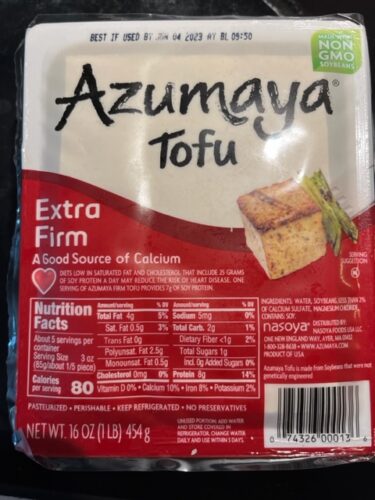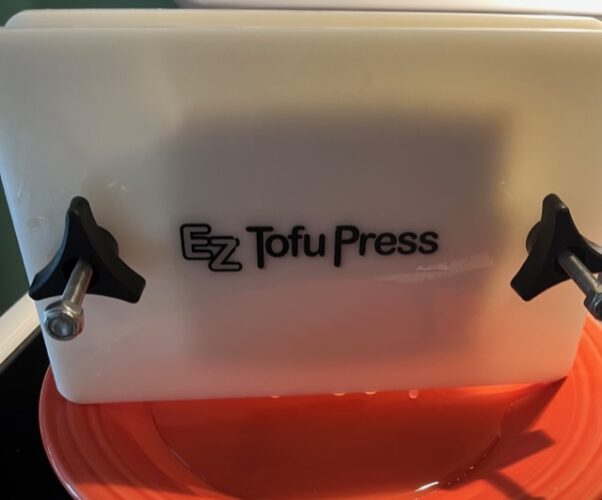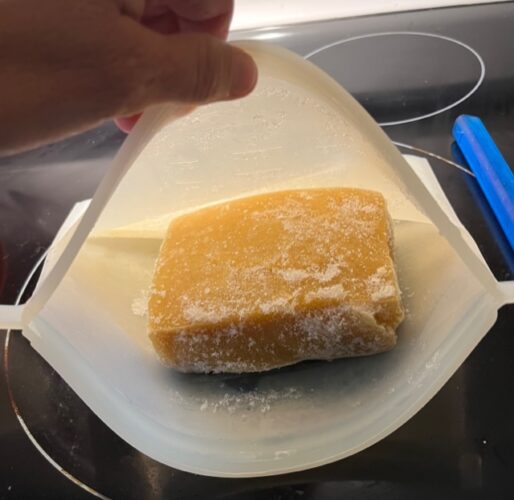We’re all hypocrites, aren’t we? The outdoor industry uses A LOT of plastics and synthetics for A LOT of its products. And plastics and synthetics require petroleum. In the entire spectrum of industries, I don’t know where ours stands as far as consumption. Kayaks are not one-time-use products. If cared for properly, the quality ones can last a lifetime. So maybe we’re on the lower end of the pile. Is that wishful thinking?
But does the fact that we rely on petroleum mean that we should just remain quiet about the consequences of our addiction? Maybe everyone has to answer that question for herself/himself. However, it seems like for any addiction, the first step is to admit you’ve got a problem; then take a hard, honest look at its costs; and finally, work towards eliminating the addiction.
While, unfortunately, I can’t see a day when we will not need petroleum (maybe I’m not imaginative enough), all of us can find ways to cut back.
This is where tofu comes in. Yes, you read that right—tofu!
More than car-pooling, recycling, and switching to energy-efficient appliances, giving up meat is one of the most beneficial things you can do to help the environment (not to mention it soothes your conscious if you consider yourself an animal-lover). And while beans are tasty, inexpensive, and a substantial source of protein, sometimes you need something else.
Enter soy meat, AKA tofu.
Don’t be afraid! It won’t hurt you.
Yes, it takes a little getting used to. And it requires more time to prepare than slapping a chicken breast on the grill. But it is very adaptable and… I’m going to say it—it can be delicious!
Mitch and I have been weaning ourselves off meat for a long time, but have been completely meat-free (at home) for almost three years now. In those three years, I’ve learned some important tofu lessons which I’ll happily share with you:
- Don’t mess with anything other than extra firm tofu. Period.
- Press it first. (If you skip this step, you’re setting yourself up for disappointment. You’ll end up with a mushy, formless mess on your hands.) I also recommend buying a press. You can always start by using a stack of books or a cast iron pan. But a press is much easier. You want to press it for a minimum of 15 minutes. 30 minutes is better.
- Freeze it. Seriously. This is the top secret piece of advice that will transform your tofu recipes. After you press it, stick it in the freezer. For some reason, freezing and then thawing pressed tofu gives it a chicken-like consistency.
That’s it!
The following is a link to our favorite tofu recipe. It is for tofu crumbles and when it comes out of the oven, I can’t keep Mitch away from the pan. I put it on salads, tostados, tacos, I use it like chicken salad for sandwiches, I make a “sloppy Joe” with it. You won’t believe how tasty it is!
https://itdoesnttastelikechicken.com/baked-tofu-bites/ – (Just use one package of tofu. I think where the author is from, the tofu comes in different packaging. And I make the crumbles pretty small because they get crispier.)
If I don’t want to use crumbled tofu, this is my favorite marinade and method of cooking:
Mix together
- 2 tablespoons olive oil
- 2 tablespoons maple syrup
- 2 tablespoons soy sauce
- 1 teaspoon liquid smoke
- 1/2 teaspoon garlic powder
- 1/2 teaspoon chili powder.
Cut thawed tofu into preferred size cubes and allow to sit in above marinade while prepping other items for your meal.
When you’re ready, heat a tablespoon or so of olive oil in a pan and, when hot, carefully set the cubes in the pan using a slotted spoon. Let it cook for 5-8 minutes and then flip it with a spatula. (When the tofu has crisped, it will flip easily. If it sticks, it’s not crisp yet.) Pour the remaining marinade over the top and stick it in a 350-degree oven for about 15-20 minutes.
Yes, our industry relies on petroleum. But it also relies on clean air, clean water, robust wildlife populations, gorgeous sunsets, public access, and natural landscapes. I hope we can one day find a substitution for the oil. But there is no substitute for the outdoors.



